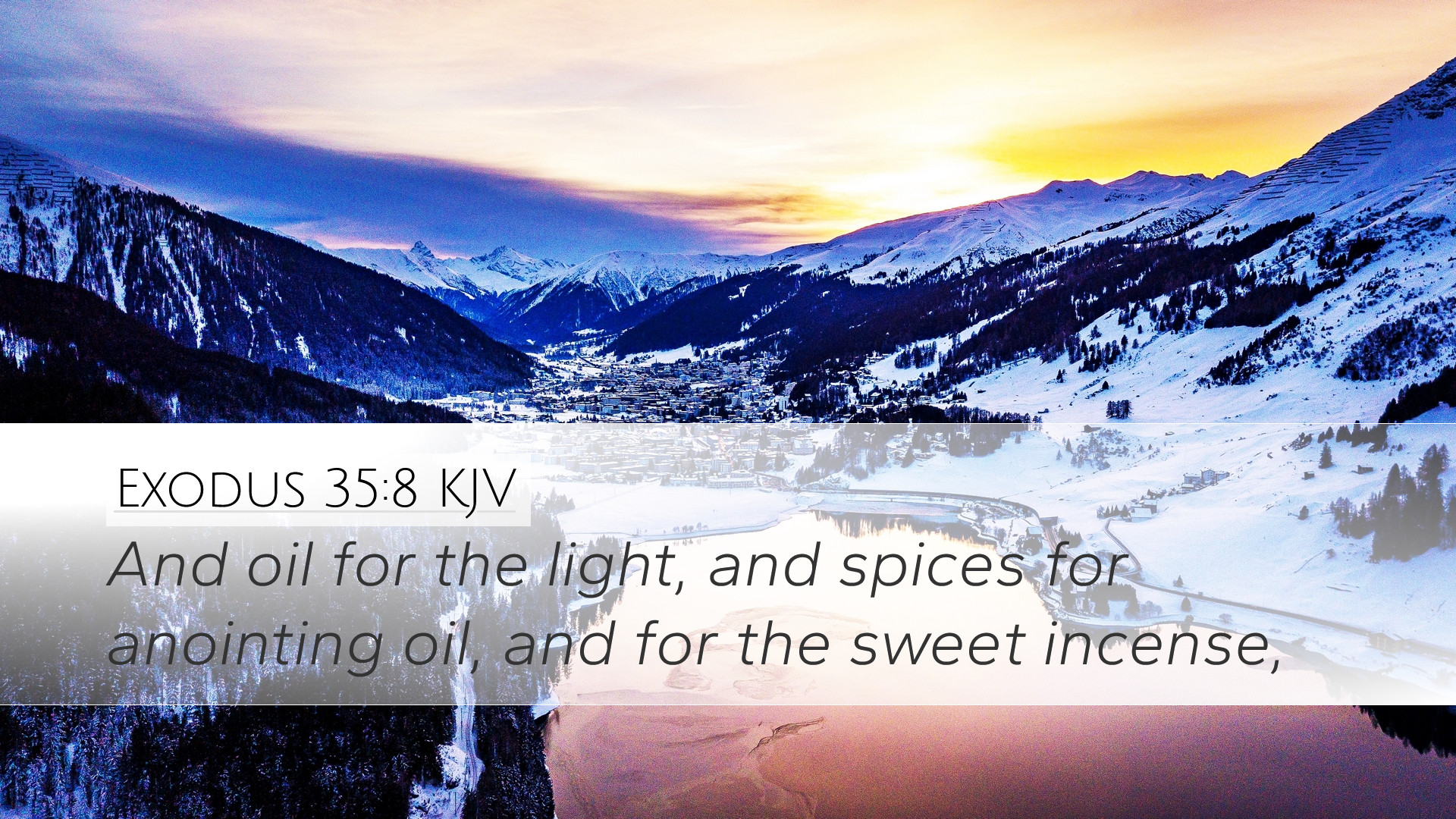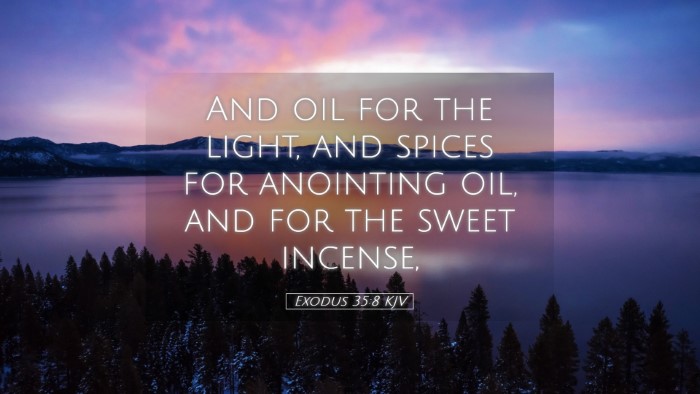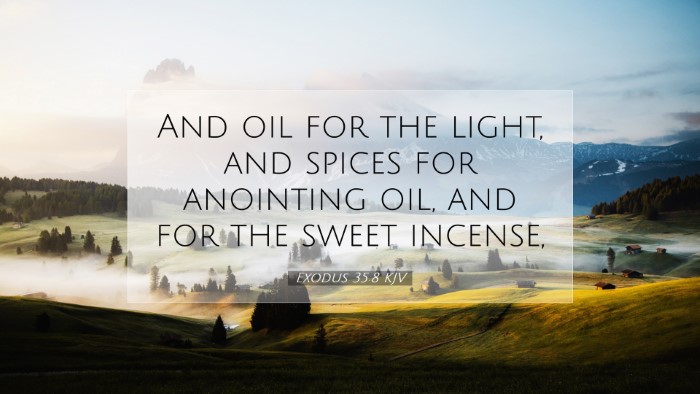Exodus 35:8 - Commentary
Verse: "And oil for the light, and spices for anointing oil, and for the sweet incense."
Introduction
This verse is part of the culminating instructions given to the Israelites during the preparation for the Tabernacle. In Exodus 35, we witness the collective effort required in the building of the Tabernacle, which served as the dwelling place of God among His people. The contributions outlined in this passage highlight both the physical and spiritual essentials needed for worship.
Commentary Overview
In examining Exodus 35:8, we draw insights from esteemed public domain commentaries, including those of Matthew Henry, Albert Barnes, and Adam Clarke. These insights combine theological depth with practical application, revealing rich layers within this seemingly straightforward verse.
Matthew Henry's Commentary
Matthew Henry emphasizes the importance of offerings made by the people. He notes that the oil mentioned in the verse symbolizes the illumination necessary for the Tabernacle service, reminiscent of the spiritual illumination that the Holy Spirit provides to believers. He highlights that the enlightening power of oil is a metaphor for God's guidance.
Key Insights:
- Oil for the Light: Represents divine enlightenment and the presence of the Holy Spirit.
- Spices for Anointing: These signify consecration and the need for holiness among the priests who serve in the Tabernacle.
- Sweet Incense: Reflects the prayers of the people rising before God, representing devotion and worship that must be fragrant and pleasing.
Albert Barnes' Commentary
Albert Barnes expands upon the idea that the facilities for the Tabernacle required more than mere physical objects. He notes that oil, spices, and incense were not only practical but also elements that enhanced the spiritual experience of worship. He draws attention to the communal responsibility of the Israelites, underscoring the necessity of collaboration in fulfilling God's commands.
Key Insights:
- Community Contribution: The materials were to be provided by the entire community, illustrating the collective nature of worship and service to God.
- Symbolic Meaning: Each item had symbolic value; oil illuminates, spices sanctify, and incense intercedes.
- Preparation for Worship: The emphasis on preparation signifies the seriousness with which the Israelites were to approach their worship.
Adam Clarke's Commentary
Adam Clarke delves into the practical uses of the ingredients mentioned in the verse, explaining how oil was essential for keeping the lamps burning in the Tabernacle, which symbolizes the ongoing presence of God among His people. He further reflects on the significance of the anointing oil, which separated the priests for their sacred duties, emphasizing the holiness required in approaching God.
Key Insights:
- Functional Purpose: The oil was critical for sustaining the light, mirroring how believers must maintain their spiritual vigilance.
- Consecration: The anointing oil highlights the theme of consecration, reminding believers of the necessity of purity and dedication in ministry.
- Prayer Symbolism: Incense is a powerful symbol of prayer, underscoring the importance of communication with God, which is integral to worship.
Theological Implications
From the combined insights of these commentators, several theological implications arise:
- The Role of the Holy Spirit: Oil symbolizes the work of the Holy Spirit in illuminating and empowering believers.
- Community in Worship: The shared responsibility for offerings highlights the Church's collective mission in glorifying God.
- Preparation and Purity: Preparing for worship involves ensuring a consecrated heart and mind, as the anointing oil and incense suggest.
Application for Today's Believers
The message of Exodus 35:8 remains relevant to modern believers, encouraging us to consider how we contribute to our communities of faith:
- Personal Contribution: Just as the Israelites brought their offerings, we too are called to contribute our time, talents, and treasures to serve God.
- Intentional Worship: We must engage in worship that is meaningful and prepared, approaching God with intentionality and sincerity.
- Living as a Light: As vessels of the Holy Spirit, we are to carry the light of Christ into the world, reflecting His love and truth.
Conclusion
Exodus 35:8 serves not merely as an historical account but as a rich source of theological reflection for believers today. The essential elements mentioned—the oil, spices, and incense—invite us to contemplate our role in worship, our dedication to God, and our communal responsibilities. As we study this verse, may we be inspired to serve faithfully and to seek the enlightening presence of God in our lives and churches.


